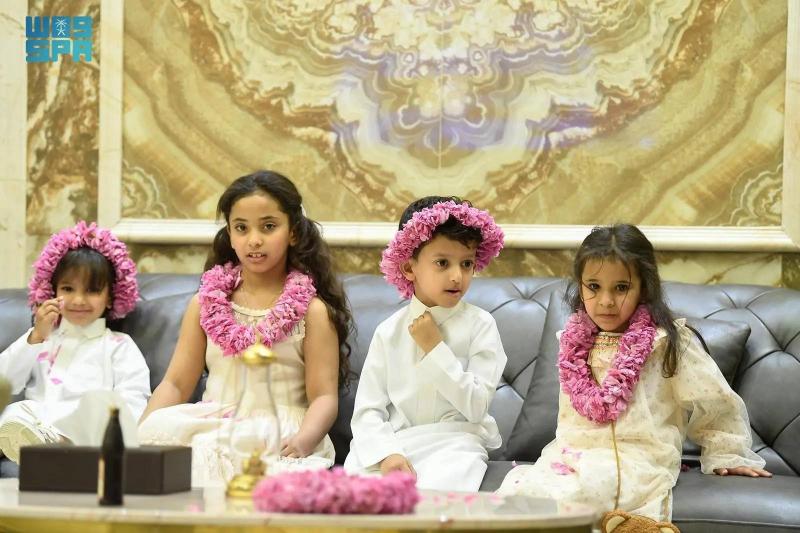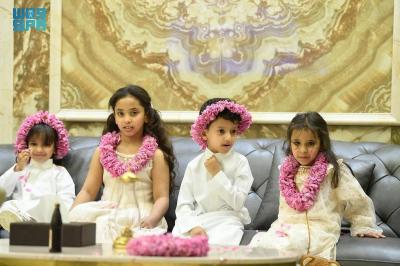Taif rose crowns, with their vibrant petals and delightful fragrance, adorned the necks of girls and the heads of young men in celebration of Eid al-Fitr. The beauty of rose garlands, one of the most famous local aromatic plants, manifested during the holiday as an attractive form of decoration and a cultural heritage unique to the Taif community. The people of Taif take pride in the rose crowns worn by women and the garlands wrapped around the heads of men and children, which have become a legacy passed down through generations, symbolizing joy and cultural traditions associated with celebrations and events.
This tradition is closely linked to the local community, enhancing the atmosphere of the joyful moments during Eid al-Fitr. The rich soil of Taif contributes to the flourishing of these roses, offering a distinctive aromatic quality that brightens the festive season. Each year, farmers coordinate the preparation of Taif rose crowns, allowing men to wear them around their heads and women to adorn their necks, serving as a decorative alternative to gold and silver jewelry.
This cultural practice conveys stories from the land of Taif and its advanced civilization, encapsulating traditions inherited from ancestors for hundreds of years. The spring evenings of the locals are filled with the acquisition or cultivation of these roses in their home gardens, resulting in striking bouquets entertaining to the eyes.
The rose farms in Taif, situated in the elevated areas of Al-Hada, Al-Shafa, Wadi Muharram, and others, create a beautiful landscape filled with the scent of flowers on the first days of Eid. These instances of floral adornment attract families and tourists alike, making visits to the famous Taif rose gardens a preferred activity during the festival. After the Eid prayers, families take the opportunity to enjoy the sight of roses and engage in mixing Taif rose water with fresh water amidst a joyous atmosphere characterized by unparalleled social cohesion.
Rashed Al-Qurashi, an expert in cultivating Taif roses, informed the Saudi Press Agency (SPA) that roses are in high demand during weddings, festivities, and accompanying festivals. He noted that the sale of roses garners significant interest from the public, with selling points established in the region's historical markets and various kiosks set up by farmers to accommodate the needs of visitors and tourists. The rose season is one of the most important economic resources in the region, and many farmers are dedicated to cultivating and bringing roses to the markets during the harvest season, as well as executing distillation processes to extract high-quality rose oil, which is sold at competitive prices due to its rarity, bringing substantial financial returns to its owners.




